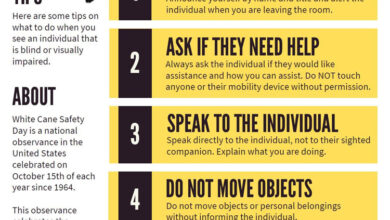Time to send those holiday packages

The United States Postal Service plans for peak season all year. And while customers may not think about the holidays until the season is upon them, it’s important to know how to properly ship all the gifts on your list. Simple planning will help prevent injuries to Postal Service employees and customers. It will also help keep packages from being returned to sender if the contents are not allowed to be mailed or the packages don’t follow size and weight requirements.
Shipping restrictions
There are guidelines to keep certain hazardous, restricted, and perishable items out of the mail – both domestically and internationally. The regulations on shipping eligible hazardous, restricted or perishable items safely through the Postal Service can be found at https://pe.usps.com/text/pub52/welcome.htm. Of course, you can always check with your local Post Office location for more information.
At the most basic level, there are items you can’t send through the mail. Prohibited items include, but are not limited to, liquor, ammunition, explosives, mercury (including items which contain mercury such as thermometers), and gasoline.
There are also restricted items that have specific guidelines to follow if you plan to send them through the mail, including alcohol (any kind, including hand sanitizer), perfumes/colognes, aerosols, and lithium metal batteries (non-rechargeable/rechargeable, used to power flashlights or laptops).
Reusing boxes?
Maybe that’s not the best idea
It’s suggested to never reuse boxes as they can weaken in the shipping process. But if you decide to reuse, make sure any labels or markings are removed or completely covered over, especially if the box you choose to reuse has labels or markings associated with hazardous, prohibited, or restricted materials.
Package size and weight requirements
Did you know that there are size and weight restrictions for packages sent through the Postal Service? The price you pay to ship items depends on the shape and weight of your package. In some cases, oddly shaped packages, such as tubes, are charged a higher price because those pieces must be processed manually.
Packages sent within the United States can’t weigh more than 70 pounds and can’t measure more than 108 inches total in length and around the widest part of the package. If you are sending items internationally or to APO, FPO, and DPO locations, lower maximum weight or size standards may be applied, and the weight varies based on the destination country. More information can be found at usps.com.
All packages must be large enough to hold the required delivery and return addresses, mailing labels, and postage on the outside of the package. Never over-pack a box, which can cause the sides or the seams to bulge or break, as well as cause injury to postal employees.
Regardless of the contents, mail and packages weighing more than 10 ounces and/or are more than a half-inch thick cannot be dropped into a collection box or left for a carrier to pick up if you’re using stamps for postage. Instead, take them to a retail associate at your local Post Office.
Avoid shipping issues by using the free Priority Mail or Priority Mail Express boxes available at your local Post Office, or order them online at usps.com. There are no extra markings to worry about covering up, the larger sizes can hold up to 70 pounds, and there are no odd shapes. Plus, you can ship for one flat rate, with tracking and basic insurance included (with some restrictions).
Additional holiday news and information, including all domestic, international, and military mailing and shipping deadlines, can be found at the Postal Service Holiday Newsroom, https://about.usps.com/
holidaynews/.
The Postal Service receives no tax dollars for operating expenses and relies on the sale of postage, products, and services to fund its operations.
Provided information






